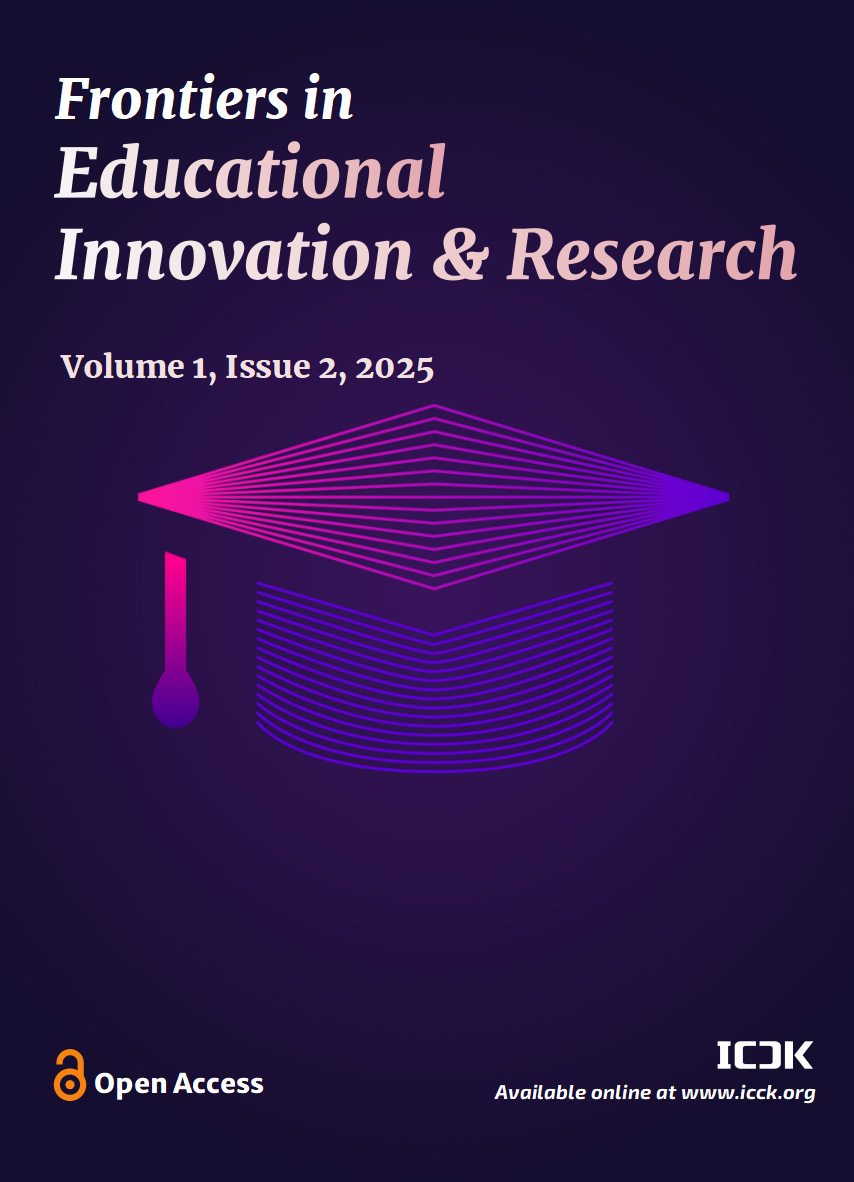Abstract
In response to the emphasis on core competencies in the "Compulsory Education English Curriculum Standards (2022 Edition)" and the requirement for efficient review under the "double reduction" policy, this study focuses on the application of mind maps in English topic review classes for Grade 3 students. In response to the trend of emphasizing the comprehensive use of language ability in the Chengdu high school entrance examination English, as well as the problems of fragmented knowledge, low student participation, and difficult follow-up for students with weak foundations in traditional review models, an integrated review model is proposed, which takes topics as the main line, mind maps as tools, and task-based activities as drivers. The study defines the core concepts of "mind mapping" and "topic review" through literature review, and takes the third grade of a certain middle school as the object. The study uses questionnaire survey method, interview method, and pre - and post test score comparison to empirically test the impact of this model on review efficiency. The experimental design covers typical topics such as "personal and family", and explores its effects on learning interest, classroom participation, knowledge integration ability, and academic performance through a three-stage teaching approach that constructs a knowledge network through pre class diagrams, trains language skills through situational tasks during class, and improves post class diagrams.
Keywords
mind map
junior high school English
topic review
Data Availability Statement
Data will be made available on request.
Funding
This work was supported without any funding.
Conflicts of Interest
The author declares no conflicts of interest.
Ethical Approval and Consent to Participate
Not applicable.
Cite This Article
APA Style
Nie, H. (2025). Research on the Application of Mind Maps in English Topic Review Class for Grade 3 Students. Frontiers in Educational Innovation and Research, 1(2), 40–47. https://doi.org/10.62762/FEIR.2025.429217
Publisher's Note
ICCK stays neutral with regard to jurisdictional claims in published maps and institutional affiliations.
Rights and Permissions

Copyright © 2025 by the Author(s). Published by Institute of Central Computation and Knowledge. This article is an open access article distributed under the terms and conditions of the Creative Commons Attribution (CC BY) license (
https://creativecommons.org/licenses/by/4.0/), which permits use, sharing, adaptation, distribution and reproduction in any medium or format, as long as you give appropriate credit to the original author(s) and the source, provide a link to the Creative Commons licence, and indicate if changes were made.


 Submit Manuscript
Edit a Special Issue
Submit Manuscript
Edit a Special Issue
 Copyright © 2025 by the Author(s). Published by Institute of Central Computation and Knowledge. This article is an open access article distributed under the terms and conditions of the Creative Commons Attribution (CC BY) license (https://creativecommons.org/licenses/by/4.0/), which permits use, sharing, adaptation, distribution and reproduction in any medium or format, as long as you give appropriate credit to the original author(s) and the source, provide a link to the Creative Commons licence, and indicate if changes were made.
Copyright © 2025 by the Author(s). Published by Institute of Central Computation and Knowledge. This article is an open access article distributed under the terms and conditions of the Creative Commons Attribution (CC BY) license (https://creativecommons.org/licenses/by/4.0/), which permits use, sharing, adaptation, distribution and reproduction in any medium or format, as long as you give appropriate credit to the original author(s) and the source, provide a link to the Creative Commons licence, and indicate if changes were made. 